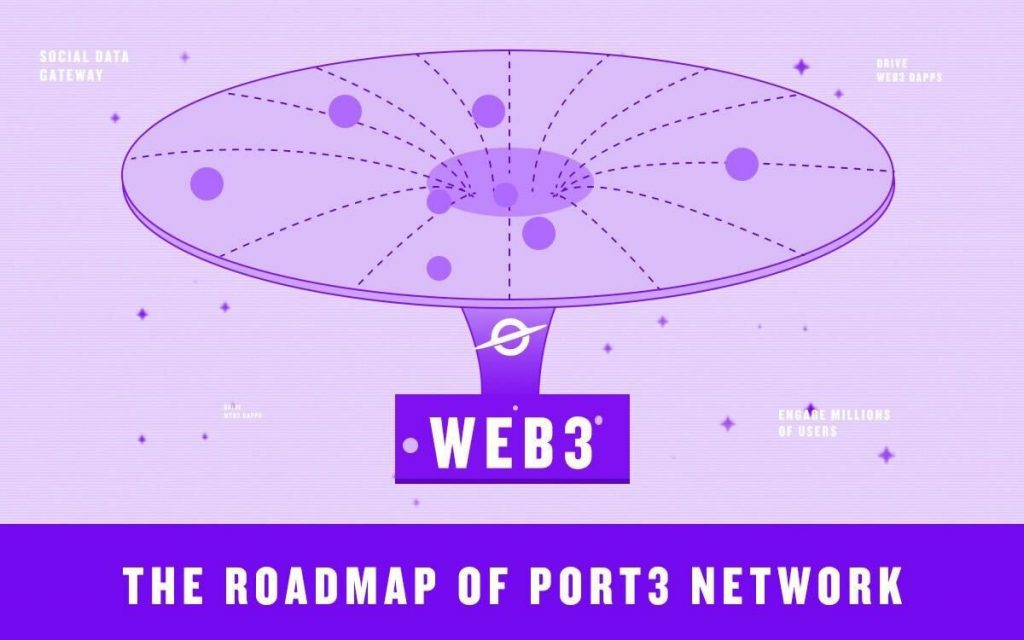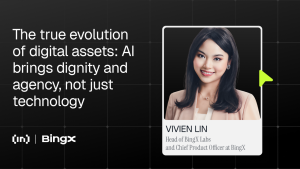A Web3 Social Data Gateway Accelerating Web2 On-chain Migration

With the emergence of the concept of SBT “Soulbound Token” and deeper crypto exploration, many people have high expectations for a future where “countless SBTs form the identity system of the Web3 world”.
In January 2022, Vitalik Buterin, the founder of Ethereum, wrote an article proposing the SBT scenario: If we understand SBT as a token with the nature of a tag, the SBT is deeply bound to the users’ accounts (or their wallets), while the non-transferability feature of SBT also weakens the speculative property.
With the combination of the two qualities, as one wallet accumulates more and more SBTs, it will represent more identities on the chain, which means this specific wallet is more trustworthy as there are a lot of identities the wallet(user) represents.
Looking back at Web2, the application layer is all about data value capture around “user identity”. At the same time, the narrative appeal of Web3 lies in the return of data sovereignty + data value mining.
Therefore, data mining and the social extension around a decentralized on-chain identity are the natural way to accelerate Web2 users into the Web3 World.
As a feasible solution to build a decentralized reputation system, the SBT concept quickly grabbed the community’s attention.
In this track, Port3 Network (hereinafter referred to as Port3), a protocol set to innovate a “Social Data Oracle” has emerged among the latest batch of projects incubated by BNB Chain’s Binance Labs MVB V.
The project has recently launched its first SBT design competition based on the consideration that the project development idea is highly compatible with the SBT concept (click for details of the event).
From August 17 to September 13, Web3 enthusiasts can unleash their imagination to design unique SBTs for various application scenarios.
379 creators have already submitted their designs for Port3’s SBTs. The SBT will represent the user’s pass in the Port3 system, enabling identification and verification.
The project will officially launch its SBT Mint Factory in Q4 2022.
The grand prospect of Port3’s Social Gateway
The essence of a Web3 social gateway is to outline the relationship map on the chain based on open data and to provide prosperous and efficient information aggregation services.
The critical point to achieving efficient aggregation lies in extensive data acquisition and accurate data analysis capability. To become the social gateway of the Web3 world, Port3 has come up with quite specific ideas in 2 steps:
Step 1: Aggregate and analyze on-chain and off-chain data, multi-dimensionally, to build a mechanism that extracts normalized data from raw data.
The basis of user identity is data. Without enough data, users’ Web3 identities cannot be formed. Port3 expands as many valid datasets as possible in the early stages and looks for application scenarios.
With enough data, Port3 can label users’ identities, preference habits, social connections, etc., and build the Web3 identity system securely and privately.
There is a growing realization that it is unrealistic to leave the existing Web2 platform to open up a 100% different social platform. A lot of social behavior still happens in Web2, and there is no data on the chain that is directly available for scenarios such as NFT minting, smart airdrop, DAO governance, etc.
It is the most reasonable option to aggregate the Web2 and Web3 data and then selectively provide the specific parts, which are needed for most scenarios.
Social behavior, in a broader sense, represents not only the tweets on SNS platforms but also includes all aspects of on-chain and off-chain actions.
Due to the massive volume of Social Data and the low value contained in Raw Data, it is essential to clean, analyze and then extract from the gigantic Raw Data to get the Standard Data with higher value concentration.
Thus, it serves third-party applications effectively. In addition, social data differs from some other data types (e.g., price data) as its source is more centralized and it is difficult to determine the authenticity of data submitted by third parties.
Therefore, in the early days, Port3 obtained data leveraging through the self-built DAO Tools matrix, through SoQuest, and other products, thereby building a standardized mechanism.
Step 2: Create a decentralized Social Data Oracle based on data aggregation, provide open data layer services for various Web3 identity and asset applications, incorporate an Incentive Layer to empower contributors, and ultimately realize data ownership of users.
The Oracle concept has been instrumental in bridging on-chain and off-chain, as evidenced by the contribution of Prize Oracle to DeFi, such as Chainlink. Without reliable price data, on-chain lending and other trading scenarios cannot be further achieved.
The future trend of Web3 cannot be separated from the social scene and data on the chain. However, the problems that need to be solved by Social Data are very different.
Thus, Port3 has set out to build the first Social Data Oracle and empower the bridging of off-chain and on-chain data.
Port3 provides open data services on the blockchain network by aggregating Web2 and Web3 data. This lays the foundation for creating a user identity, protecting the user’s privacy, and realizing other various applications.
In the field of Web3, many applications have emerged in the fields of reputation system, identity authentication, smart airdrop, community governance, DAO governance, advertisement recommendation, etc., and even related to the fields of recruitment and blind dating.
However, there is only a small scale in these scenarios, and there is no widespread interconnectivity. Just as the Price Oracle is to DeFi, the booming Web3 needs its own Oracle to achieve connectivity and form a powerful social network effect. Web3 needs a Social Oracle.
The goal of the Social Data Oracle lies in solving these three core problems:
How the data is organized and connected;How the rights to the data are vested to the user;How to protect the user’s privacy.
Port3 has thought deeply about these three aspects and designed a decentralized mechanism to implement them:
Firstly, various source data is aggregated to Port3 through multiple channels (reporting, crawling, indexing).
Developers can define their data models, i.e., define input, output, and processing algorithms, and publish them to data markets.
The Aggregator node in Oracle will run the algorithms defined by the data models and output the results to Oracle contracts, which will be read directly by third-party applications.
The data models defined in the Data Markets will be combined and indexed by Reader nodes in the network and form secondary aggregated data available to third parties.
In this process, Oracle also incorporates the Incentive Layer, where reading data requires payment to the Oracle network.
The incentive amount will be distributed to the Aggregator and Readers nodes of the web, and part of it will be distributed to the contributors of the data.
A single user is the smallest contribution unit. The user needs to have Port3’s SoulBound NFT as the identity of Port3 ecology before getting the contribution. This also serves as an effective isolation of user privacy.
The final output to Oracle is only the user’s Web3 identity and the aggregated target data. In this way, even if users participate in an off-chain activity that the Oracle reads, they will benefit from sharing data. Such a thing could never happen in Web2.
At the same time, the users can index all their linked data through the Social Data Oracle’s Readers and manage it in one place.
The excellent performance of SoQuest since its launch
SoQuest aims to be the Quest platform of choice for Web3. It was recently launched in July and has already achieved some remarkable data milestones. SoQuest empowers data integration through API and Oracle to perform NFT mints and airdrops as rewards for the quests’ winners.
SoQuest has achieved remarkable market performance based on its strong practicality: in two weeks of launch, 70+ partners have opened SoQuest Space; 61 campaigns have been held; 18,330+ users have participated; 313,640+ actions have been completed; 29,130 users have connected their wallets and logged in; SoGraph has reached 2,100+ daily activity.
Any project, KOL, or DAO in the Web3 world can use SoQuest(application page) to build its own space and quickly launch a brand campaign with various on-chain and off-chain tasks.
After the data is integrated with SoQuest, all participants can be rewarded immediately after completing SoQuest tasks without needing snapshots, address uploads, whitelisting, and other cumbersome processes.
△ The market performance of SoQuest
As more and more projects launch various campaigns to attract users’ participation, the continuous enrichment of on-chain and off-chain data makes Port3’s tagging more diversified and identity more accurate, thus accelerating Port3 to become a true social data gateway and traffic portal in the Web3 world.
The three main modules of Port3 Network, the home of Web3
How has Port3 managed to show such strong growth in such a short period of time? What makes its design unique?
From the project’s design system, Port3 has three core modules, which correspond to data collection, viewing, and application.
Social Data Aggregation Channel: Data Collection
Through the DAO Tools, Port3 aggregates data covering community dynamics on instant messaging platforms such as Telegram and Discord, social media content trends on Twitter (YouTube and Instagram will be supported in the future), and real-time price and transaction interactions on the chain.
In addition, through the Contribute-to-Earn Method, more people are encouraged to contribute data to earn platform tokens and governance rights, providing a broader data source for Port3 data aggregation.
Port3 has a reach of 3.3+ million users through the DAO Tools matrix of Discord and Telegram and currently supports 340+ projects on the 10 most popular public chains, including Ethereum, BNB Chain, Solana, Avalanche, and Fantom.
Project parties can easily achieve on-chain interaction and community analysis through the Port3 DAO Tools.
SoGraph.xyz: Data View
As a Port3 endpoint page, SoGraph.xyz outputs results from the data aggregation and offers the visualization of essential information such as community trends, project activity, and market trends.
For individuals, SoGraph.xyz is the portal to associate Web2 and Web3 identities, participate in various activities, and view Web3’s developing trends.
It also includes SoQuest. The upstream and downstream integration simplifies individuals’ participation in project activities, freeing them from cumbersome page jumps and helping them easily complete tasks such as smart contract interaction, visiting a web page, following on Twitter, inviting people, or verifying wallet balance for certain NFTs (in the case of super exclusive campaigns), just to name a few quests.
The Dashboard version of SoGraph provides more data insight for project owners and communities.
ML-based analysis algorithms can analyze various data metrics, such as community users’ composition and market sentiment, which can help project owners better understand their communities and sharply capture users’ trends and incentivize their users properly.
Port3 Protocol: Data Application
The Port3 Protocol is the foundation of Port3’s open and collaborative data layer.
First, after the data is aggregated and privacy-protected, the data results will be uploaded to the Port3 data marketplace; when someone wants to read the data content from Port3, they need to pay some Oracle tokens to the platform, a fee basically.
When the data is used, the data provider is rewarded with these tokens.
Throughout the process, data providers are in full control of their data, and their private data is strictly protected. In the meantime, they will receive data usage revenue and platform governance rights through the Port3 Protocol Incentive Layer.
The Port3 Protocol also eliminates centralized data intermediaries, which means third-party data users have access to valid data at a lower cost and in a more accurate way.
Port3 Network’s roadmap and core competencies
On July 28th, Port3 released the SoQuest solution with APIs support, and this coming September, Port3 will release the BNB Chain Action Parser and enable a larger-scale on-chain data aggregation.
In Q4 2022, the team will officially launch the Social Data Oracle v1, thus enabling data sharing via oracle contracts and releasing SDK to facilitate partners’ demands. In the meantime, the number of Port3 partners is expected to increase in excess of 100.
Port3 will expand the on-chain Parser to Ethereum and other EVM-compatible chains.
Port3 will also release Soulbound NFTs to tag users in Q1 2023; in Q2, the team will upgrade the data analytics dashboard to show more data analytics results; in Q3, Port3 Network will explore more data application scenarios such as trading, IDO, DAO governance, social platform, etc.
The world of Web3 is changing rapidly, and new narratives are emerging. The exploration of data validation, data analysis, data services, and data revenue around decentralized on-chain identity remains the critical exploration direction across the cycle.
Be it Gleam in the Web2 world or other Quest platforms in the Web3 world, quite a few products are similar to SoQuest in the market. So what are the advantages of Port3 to face the fierce competition?
Compared to Gleam, the task system giant of the Web2 world, Port3 enables a seamless connection between Web2 and Web3.
Besides, Port3 truly puts ownership of data back into the hands of users, giving them not only privacy protection but also revenue.
Compared to many Quest Platforms in the Web3 world, Port3 regards “Quests Service” as one of the most active scenarios today and as the initial fuel for the Social Data Oracle.
Additionally, Port3 has a user base of millions through the DAO tools that other projects don’t have, which means a broader range of data sources.
Based on these sources of data, Port3 is able to explore the implementation of social gateways and SBTs.
In the meantime, the Port3 team is committed to realizing secure and efficient social data aggregation in the true sense of the word, driving Web2 users and data into Web3 at an accelerated pace.
Port3 Network sets out to be “The Home of Web3”, where everybody’s data matters, where you can access it, and where you can seamlessly monetize it. To this endeavor, all we can reply with is “Oh…home…sweet home”.
Disclaimer
All the information contained on our website is published in good faith and for general information purposes only. Any action the reader takes upon the information found on our website is strictly at their own risk.













